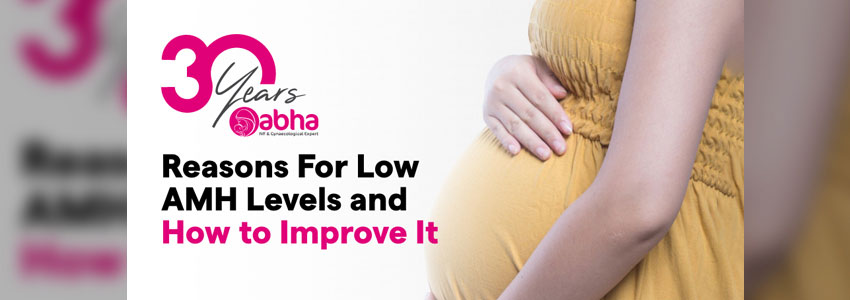

AMH, or Anti-Müllerian Hormone, is a key indicator of a woman's ovarian reserve, meaning the number of eggs remaining in her ovaries. Low AMH levels are often associated with reduced fertility potential, but it is important to remember that it is just one aspect of reproductive health. At Abha Surgy, the best fertility centre in Kolkata, we understand that many women may be concerned about low AMH levels, and we aim to provide expert advice and treatment options for such cases.
As a woman ages, her ovarian reserve naturally declines. This is one of the most common reasons for low AMH levels. Women in their late 30s and early 40s often experience a significant reduction in their AMH levels, even if they are still having regular periods.
Interestingly, women with PCOS may experience both high and low AMH levels. In some cases, women with PCOS have high AMH levels due to an excess of small follicles, while in other cases, the hormone may be lower than normal, leading to fertility difficulties. At Abha Surgy, we often guide women with PCOS through tailored treatments to manage their fertility.
Genetic factors can play a significant role in a woman's ovarian reserve. Some women may have naturally lower AMH levels due to family history, even in their 20s.
Certain medical conditions such as endometriosis, autoimmune diseases, or thyroid problems can affect ovarian reserve, leading to lower AMH levels. It is essential to address these conditions early, as they can also impact fertility.
Treatments like chemotherapy and radiation therapy, which are used for cancer treatment, can have a significant impact on AMH levels. These treatments may damage the ovaries and reduce the number of eggs available.
Stress, obesity, smoking, and poor diet can also negatively affect ovarian reserve. While stress is not directly proven to reduce AMH levels, high-stress levels can have indirect effects on fertility by disrupting hormone balance and menstrual cycles.
While low AMH levels can't be fully reversed, there are steps you can take to improve your overall reproductive health and potentially increase your chances of pregnancy.
Low AMH levels can be a cause for concern, but with the right guidance and treatment plan, women can still have the opportunity to conceive. At Abha Surgy, our dedicated team of fertility experts is here to help you understand your AMH levels and explore the best course of action. If you have concerns about your fertility, reach out to us for a personalised consultation.